- Home
- Roy J. Snell
The Rope of Gold Page 10
The Rope of Gold Read online
Page 10
CHAPTER X STOWAWAYS
That the boat they had sighted was a large one, far too large to betipped on its side they learned soon enough; not, however, until they hadbecome utterly exhausted by their mad race with the storm.
And such a storm as it promised to be. The sky was inky black. Themountains, the nearby hills, even the cocoanut groves were blotted out.The sea, a sheet black as iron lay so still it appeared that one mightwalk upon it.
"Cou--couldn't turn it over. If it--it was only a bark canoe! And look!"Doris panted. "It's a young ship."
It was indeed. The craft they had taken for a row-boat was a squaremasted schooner, with mast thrown carelessly over the side.
"We might get under the sail," suggested Doris.
"Too much wind," said Johnny. "Blow away. Give me a hand. I'll lookinside of her."
Doris gave him a lift and up he went.
"Yo--ho!" he cried ten seconds later. "What luck! A cabin, a regularcanvas cabin in her prow. And not a soul on board. Give us your hand andup you come."
"But dare we?" screamed Doris above the roar of the storm.
There was no time for answering this question. The storm was upon them.She could see it racing in white sheets down the beach.
Up they went, up and over, scramble, tumble, scramble, and they werethere, all hidden in the prow with a roof of stout painted canvas overtheir heads and a brown curtain of the same material hanging before them.
"What could be sweeter?" said Johnny, dropping into a corner.
"How it rains!" Doris shuddered as torrents of water came pelting down.
Once more the native girl was whispering to her snake tooth charm.
Nieta was the only member of the little party who really fearedlightning. Now they were sheltered from the rain and far from tall trees,where danger from lightning really lurks, Doris and Johnny settled backeach in a dark corner for a good rest.
"Wonder whose boat it is?" said Doris.
"Native boat," said Johnny. "Tell by the way the canvas is sewed and theboards are nailed."
"Probably came from Cape Haitian," said Doris. "Gone up in the hills tohunt wild guineas or cocoanuts. We'll get them to take us to town withthem."
This was a consoling thought. To trek back up the mountain in the darkand wet after the storm would be difficult indeed.
"Wonder where Mr. Monk is?" said Doris.
"It's curious about that ring," said Johnny. "It looked old--old as thehills. The gold was all tarnished and the stone didn't look a bit likethe ones I've seen; wasn't cut the same."
Doris made no answer to this. She had suddenly recalled some strangestories told to her by a very old black woman of Cape Haitian. Thestories had to do with days long gone by. They told of the rule ofChristophe, the only powerful emperor Haiti has ever known.
"And Honey," the toothless old crone had said to her, "I had it rightfrom my own Mammy and I know it's true; the ladies of that Emperor'scourt wore diamonds and rubies and pearls, such jewels as you only hearof now, but don't most never see.
"And when the uprisin' came and the Emperor was expectin' to beoverthrowed, the wicked old Emperor took all the jewels an' gold an'buried it somewheres; nobody's found out where. No Honey, not nobody hasever found it yet."
"What if--" Doris thought to herself now. "But then of course that couldnever be."
"And besides," she added a moment later, "we'll never see the monkeyagain, so how could we follow him?"
Then, because she was far from her home and her new found friend, JohnnyThompson, was near at hand, because the wild beat of the storm gave her afeeling of loneliness and a longing for someone to confide in, she toldhim of her day dreams, of her hope that she might find the monkey andfollow him to the hiding place of the ancient treasure.
"There must be something to that story of the hidden treasure of theblack Empress," said Johnny quite soberly. "Of course there are many wildtales told of that romantic king of the blacks. This much is history. Iread it in a book written six years after his death. When the emperorfelt his throne crumbling beneath him he went one evening to the Citadel.There he worked until past midnight. At two o'clock in the morning heknocked at the door of one of his dukes, a trusted ally.
"The duchess opened the door and was frightened half out of her wits. Theemperor said nothing was wrong. He required the service of the duke; thatwas all.
"The duke dressed, then accompanied him to the castle. At the back of thecastle they entered a door to drag forth a strong box. It was all the twoof them could do to lift it.
"Having carried it a little way they hid it, so the story goes. When thework was done the emperor explained to his ally that the box was filledwith the queen's treasures; that, if anything ever happened to him, therewas enough there to support his family in comfort for many years.
"A few days more and the emperor was dead." Johnny's story was at an end.
"And the treasure?" Doris leaned eagerly forward trying to read his facein the half darkness.
"Who knows about that?" Johnny laughed a low laugh. "If we knew where itwas hidden we would go for it. If that had been told in the book, thetreasure would have been removed long ago.
"So far as anyone knows, the duke never betrayed the emperor's secret.Perhaps he too died during the uprising. As for the queen, everyone knowsthat she sailed for Europe on the first available boat and never returnedto Haiti.
"You see," he explained, as he felt that Doris was about to ask one morequestion, "the Emperor had sent a great deal of gold to England by a seacaptain he trusted. This was at the queen's disposal. Since it was enoughwhy risk her head by a return to Haiti in search of further wealth?
"So," he added, with another low laugh, "the treasure is yours; providedyou find it. I too have been on a search for some of the emperor'streasure, the 'Rope of Gold'."
"I know," she said quietly. "How have you succeeded? When I was at yourcamp you were mysteriously absent."
Johnny told her of his search, of Curlie Carson's strange doings, of hiskidnapping by the natives, and his all but miraculous escape.
"And so here we are," he added. "Two treasure hunters lost in the nightand the storm."
"Here--here's wishing you luck," said Doris, reaching out in the halfdarkness to grip his hand.
"But say," Johnny asked, "what would you do with all those diamonds,rubies and all that if you found them?"
"I'd sell them. Don't care much for jewels. They're too hard to keep.People steal them.
"And then," she half closed her eyes, to lean far back in her corner,"then I'd buy dresses and shoes and things like that. I like brightthings. I want a blue dress with orange trimmings and an orange dresswith blue trimmings, and a green dress with an old gold sash, and a whitedress with a pink sash; all of them silk, real shimmering silk thatshines in the moonlight."
"That," said Johnny quite suddenly, "will do. Here's hoping you neverfind them. I like girls with arms strong as a man's, who can hike tenmiles and who mostly wear khaki knickers."
"And yet," he set the gleam of his flashlight measuring her up and down,"if that's what spells happiness for you, you should have all yourdresses and wear them too."
"I suppose," he added, "that you also want a fur coat."
"No," she said, in sudden anger. "I don't. I want a midnight blue capewith an Alaskan white fox collar."
"That," said Johnny at once sorry for his caustic remarks, "shows yourgood taste. I've been in Alaska. Know real fur when I see it. And like itas well as you. Here," he said, putting out a hand, "is wishing you bestof luck and happiness! Everyone in the world has a right to happiness."
"I say!" he exclaimed after a brief silence. "How'd you like some lunch?"
"Fine! Please serve it at once," laughed Doris.
"No fooling. Pockets full of good, ripe bananas."
He began digging into his pockets. In the end, he brought out three;quite a little feast.
Aft
er the first wild burst that came like a flood, the rain settled downto a steady, monotonous patter--patter--patter on the staunch canvasroof.
Night crept in upon the world like the falling of a great curtain. Allthree, Johnny, Doris and Nieta had traveled far that day. They had beenhot. Now they were cool. They had been excited. Now they were calm. Theyhad been weary. Now their bodies were in repose.
Slowly a drowsiness crept over them. The slow patter--patter of rain ontheir roof, the low rush of wind through the palms whispered of sleep.
And why not? Just three winks. Here they were cosy and safe. The stormwould end. Then they would wake to think of other things.
Perhaps they did not think it through in just this manner. Probably theydid not think it through at all, but yielded to the call of slumber.However that may be, time found them all breathing softly and steadily insleep. And still the rain pattered on their canvas roof.
Just how long they slept no one will ever know. It was Johnny who firstawoke. He emerged from unreality to reality, from dream life to real lifewith something of a start.
In his dream he had once more followed the strange monkey with the bandof gold and a diamond on his arm. The monkey climbed a great cocoanutpalm. With quite as much ability, he followed after. Up--up--up, ten,twenty, thirty, forty feet he climbed until at last he was among thefronds, sitting on a clump of half-ripe cocoanuts.
But where was the monkey? He looked wildly about him and even as helooked a sudden burst of wind seized the great palm and set it swayinglike an inverted pendulum, back and forth.
Still in the dream he threw out his hands--but found nothing to which hemight cling. He tried to cry out but words stuck in his throat.
It was at this instant that he awoke. Awoke to what? A very dark littlechamber at the prow of a sail-boat and silence.
No not quite silence. There was a strange rushing sound all about him,and in the distance an indistinct murmur of voices.
Instantly he recalled his position. But the sounds, the rushing, thesubdued voices, these were startling.
"There were no voices," he told himself. "No people at all except--"
Perhaps it was Doris and Nieta. They might have awakened and gone out ondeck.
But no, as his eyes became accustomed to the dim light he made out theirforms close beside him. They were still asleep.
Then, of a sudden, he realized that a part of his dream was true. Theboat was pitching about.
"We are on the sea," he told himself as his heart leaped painfully. "Theyhave launched the boat, whoever they are. We are on our way out to sea.
"Oh well," he endeavored to reassure himself, "they will be going to CapeHaitian. When we get there, we will give them a grand surprise. We'llcrawl out and thank them for the ride. What sport to be stowaways.
"But were they going to Cape Haitian?" This question troubled him moreand more as time went on. The size of the waves they rode, the break ofspray over the canvas, the creaking of masts seemed to tell him that theywere not hugging the shore but striking boldly out to sea.
"And if we are?" Once more he caught his breath. Where would they begoing? What was to be done when they got there? He had never been on atropical island save Haiti. What the people were like on other islands hehad not the faintest notions. He had heard that some were cannibals.
He thought of going on deck, of trying to hire the skipper to carry themback to land. He dared not. Perhaps these very people were cannibals orpirates. Who could tell? All he could do was to sit tight and see whathappened. He feared more for his recently found friends than for himself.
As the boat sailed quietly on and nothing happened, his mind became moreat ease. He wondered whether he should awaken his companions. After amoment's thought he decided this would be unwise. To awaken them would beto add to their period of anxiety. Nothing could be done until they cameto some land.
"Besides," he told himself, "wakened suddenly from sleep, they may speakaloud and betray our presence. That might bring disaster. If these arebad men our chances of escape on land will be much greater."
So he sat there in silent meditation, sensing the lift and fall of theboat, catching the toss and creak of the masts and wondering whither theywere bound.
Oddly enough, he thought again of the monkey and his diamond set band ofgold.
"Now surely," he told himself, "we will never see him again."
Passing strange it was to be riding thus, alone save for two sleepingcompanions; and those friends for but an hour; sailing over waters he hadnever before sailed to some land he had never seen. The rain had ceased.The moon was out. It shone upon a tossing sea.
More than four hundred years before another small craft had sailed thesewaters in the light of that moon. It was upon the shores of Haiti thatColumbus established his first colony. For a time Johnny amused himselfby imagining that he was Columbus sitting in his berth, waiting for thesound of a dropping anchor.
"It must have been wonderful," he told himself. "The first white man tosee these shores."
Of a sudden, as he sat there thinking, there came a sharp command fromthe stern, then another and yet another.
"Surely that must awaken them." He looked at his companions as hestiffened in preparation for an emergency.
Doris stirred but did not awaken. Nieta slumbered on.
The boat gave a lurch, appeared to veer in its course, then swept on. Tenminutes later the tossing ceased.
"Entered a bay. Come to land soon. What land?" He thrilled afresh.
"It's like the adventures of Robinson Crusoe."
A half hour later the boat ground gently on a sandy shore. The mast camedown. There was the sound of men going ashore. The boat was drawn fartherup on the beach. After that all was darkness and silence.
"Now is our chance," he thought. His knees trembled slightly as he roseto part the canvas curtain and peer out.
He saw no living thing. Stepping boldly out he looked shoreward. A groveof tall palms painted a dark fringe against the night.
"Now is our chance," he repeated as he stepped back.
"Doris." He spoke the name in a low tone as he touched the girl'sshoulder. "Wake up!"
"Wha--where are we?" She sat up sleepily.
"I don't know where. I only know we have arrived," said Johnny. "Hurry.Waken that native girl. We must get out of this boat."

 On the Yukon Trail
On the Yukon Trail Wings over England
Wings over England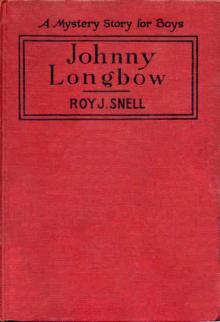 Johnny Longbow
Johnny Longbow Sally Scott of the WAVES
Sally Scott of the WAVES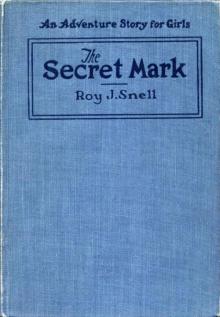 The Secret Mark
The Secret Mark Betty Leicester's Christmas
Betty Leicester's Christmas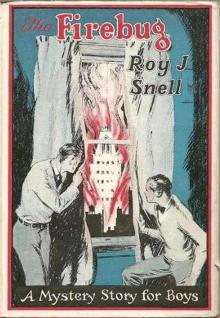 The Firebug
The Firebug Minnie Brown; or, The Gentle Girl
Minnie Brown; or, The Gentle Girl Jack the Hunchback: A Story of Adventure on the Coast of Maine
Jack the Hunchback: A Story of Adventure on the Coast of Maine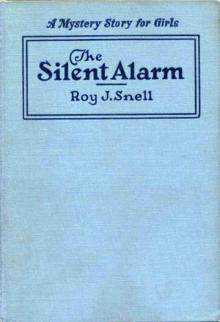 The Silent Alarm
The Silent Alarm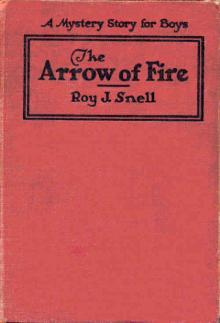 The Arrow of Fire
The Arrow of Fire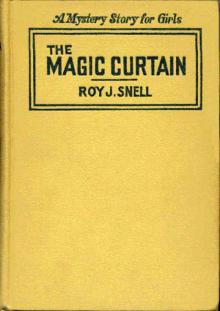 The Magic Curtain
The Magic Curtain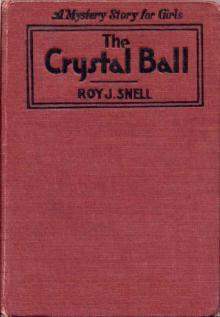 The Crystal Ball
The Crystal Ball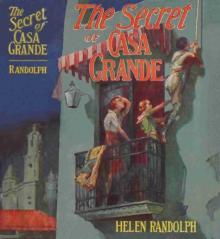 The Secret of Casa Grande
The Secret of Casa Grande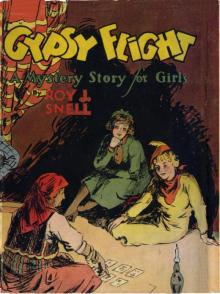 Gypsy Flight
Gypsy Flight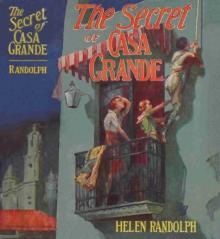 The Mystery of Carlitos
The Mystery of Carlitos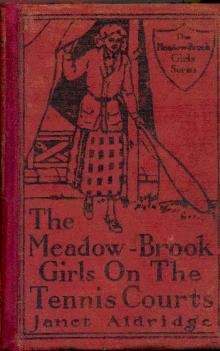 The Meadow-Brook Girls on the Tennis Courts; Or, Winning Out in the Big Tournament
The Meadow-Brook Girls on the Tennis Courts; Or, Winning Out in the Big Tournament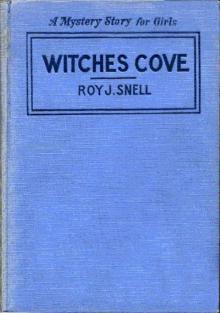 Witches Cove
Witches Cove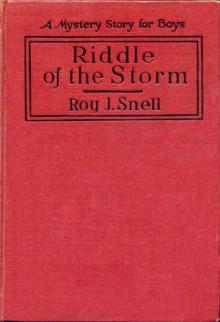 Riddle of the Storm
Riddle of the Storm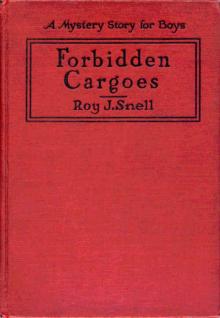 Forbidden Cargoes
Forbidden Cargoes Green Eyes
Green Eyes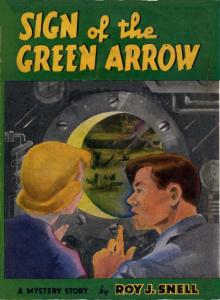 Sign of the Green Arrow
Sign of the Green Arrow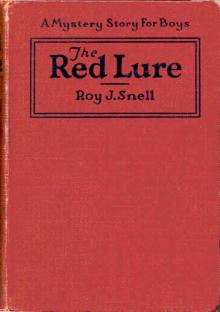 The Red Lure
The Red Lure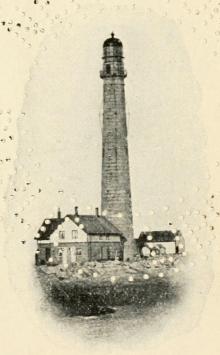 The Light Keepers: A Story of the United States Light-house Service
The Light Keepers: A Story of the United States Light-house Service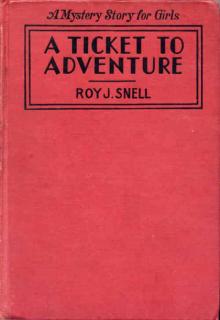 A Ticket to Adventure
A Ticket to Adventure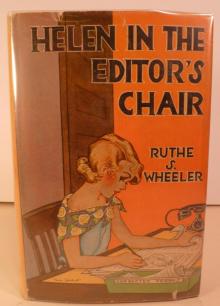 Helen in the Editor's Chair
Helen in the Editor's Chair Blue Envelope
Blue Envelope The Purple Flame
The Purple Flame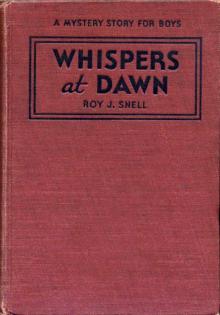 Whispers at Dawn; Or, The Eye
Whispers at Dawn; Or, The Eye The Rope of Gold
The Rope of Gold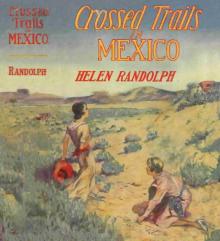 Crossed Trails in Mexico
Crossed Trails in Mexico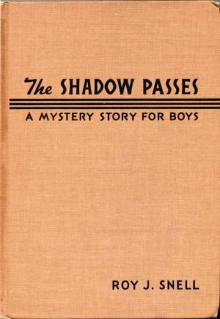 The Shadow Passes
The Shadow Passes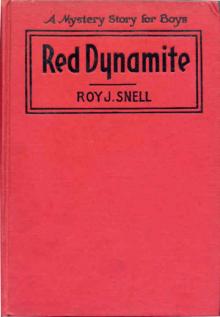 Red Dynamite
Red Dynamite Blue Grass Seminary Girls on the Water
Blue Grass Seminary Girls on the Water The Cruise of the O Moo
The Cruise of the O Moo